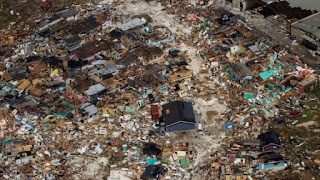In our October 28, 2019, post one of us saw “repair[ing] our alliances around the world thereby protecting our national security in a way consistent with our values and those of our allies” as a major task of any Democrat elected president in 2020. We’ve consistently emphasized the importance of demonstrating America’s global leadership after the decline caused by the Trump administration’s
The Man and His Team
Biden arrived in the White House superbly
Biden picked an experienced foreign
policy team. State Secretary Antony Blinken had key foreign
To This Point
Despite raging domestic problems like the covid pandemic, its resulting economic dislocation, and
his agenda on infrastructure, climate, and racial justice, Biden moved quickly on some important foreign policy fronts:· Emphasizing alliances – Trump disdained NATO, ridiculed the joint defense aspects of the Atlantic alliance, and managed to have nearly all the major European leaders laughing at him in public at international meetings. Biden has pledged his backing for NATO, most importantly reaffirming the mutual security aspect of the NATO treaty that makes an attack on one NATO member an attack
on all. European leaders like England’s Boris Johnson, Germany’s Angela Merkel, and France’s Emmanuel Macron welcomed the new American president with open arms.·
Resetting the relationship with Russia
– Biden met with Russian President Vladimir Putin. Both said it wasn’t unpleasant or confrontational, but
Biden clearly aimed to let Putin know he won’t find the same coziness and acquiescence
he found with Donald Trump.
· International organizations and cooperation – Biden put the U.S. back in the Paris Climate Accords, stopped the American withdrawal from the World Health Organization, and returned the
United States to the U.N. Human Rights Council. Participation in these organizations assures the U. S. a voice on major international issues and helps prevent other nations from taking actions that affect the U.S. when we’ve had no say.· Getting out of Afghanistan – Americans of all political persuasions want an end to our military
presence there. We went there in 2001 in the wake of the September 11 terrorist attacks. We spent $2 trillion. About 240,000 people lost their lives. The only real debate has been over timing of withdrawal. Trump pledged we’d get our remaining 2500 troops out by May 2021. Biden did a review of the situation and announced we’re leaving by September 11. Maybe it’s the right thing to do, maybe it’s not. It apparently will happen with the agreement of most Americans.· Fine tuning American policy – Biden has changed many of Trump’s policies, but not all of them. On
China, for example, Biden will keep in place tariffs Trump imposed and continue diplomatic pressure on the Chinese over alleged atrocities committed against Uyghur Muslims. In the Middle East, however, he’s resuming financial aid for the Palestinians thatTrump cut off. He’s reaffirmed American support for a two-state solution to the Arab-Israeli conflict, a longstanding U.S. policy Trump essentially abandoned. Biden also ended American backing for the Saudi-led war in Yemen.·
Launching
a global anti-corruption effort – The Biden administration’s first National Security Study Memorandum established fighting corruption as a
core national security interest. The memorandum ordered that federal agencies
prioritize efforts at confronting financial crimes. Cybercrimes and “strategic
corruption” by foreign entities and governments will receive new attention.
What it Means for
Americans




























